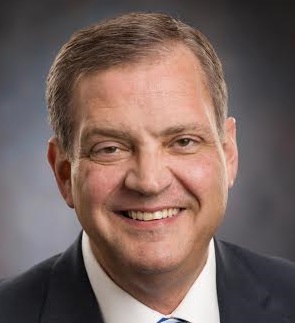By Bob Allen
A Southern Baptist leader and scholar says Halloween is a good time for Christians to remember that evil spirits are real and to make decisions on whether or how to celebrate the holiday accordingly.
Albert Mohler, president of Southern Baptist Theological Seminary in Louisville, Ky., said in an Oct. 31 podcast that Halloween is a calendar event that “presses each year upon the Christian conscience.”
 “What we’re looking at here is the reality that many Christian parents are becoming aware of the moral and ethical, not to mention the theological, complications of this holiday,” Mohler said.
“What we’re looking at here is the reality that many Christian parents are becoming aware of the moral and ethical, not to mention the theological, complications of this holiday,” Mohler said.
Mohler said Christians must consider not only the holiday’s roots as a pagan festival marking the end of the harvest season and the impending darkness and death associated with winter, but also with America’s fascination with violence displayed on the big screen in horror movies like the “Halloween” series of slasher films.
Mohler said Halloween “becomes very problematic” for Christians, because the worldview it presents collides head-on with the Bible “on any number of issues.”
Mohler acknowledged that most people who dress up as ghosts and goblins “aren’t intentionally identifying with the pagan background at the expense of Christianity” but rather observing a cultural holiday while “not thinking in deeply theological terms.”
“But that doesn’t mean that they’re not spiritually and theologically responsible,” he said.
Mohler said Christians react to Halloween in different ways.
“Some Christians argue that the pagan roots of Halloween are really no more significant than the pagan origins of other holidays including the timing of what we call Christmas and other church festivals,” he said. “And we need to recognize and admit that without doubt the church has progressively Christianized the calendar, seizing secular and pagan holidays as opportunities for Christian witness and celebration.”
“Other Christian families just decide to have nothing to do with the holiday whatsoever,” he said. “Their children don’t go trick or treating. They don’t wear costumes. They don’t attend parties related to the holiday.”
A “middle position,” he said, taken by some parents and even some churches, attempts to “Christianize the holiday.” Participants “enjoy the kind of things that are involved in passing out candy, having games, celebrating the change of seasons, letting kids dress up as something they are not, but drawing limits on the appropriation of elements from the dark side in terms of the celebration.”
Mohler said he doubts that any of the three is the only acceptable position, but he did advise that any Christian who underestimates the powers of darkness “simply isn’t taking seriously what the Scripture speaks to, not only with incredible seriousness, but with candor as well.”
“As the letter to the Ephesians comes to a close, the Apostle Paul reminds us that our spiritual warfare is not against flesh and blood but against principalities and powers, against the rulers and the spirits of the air,” Mohler said. “In other words we are involved in a spiritual warfare, and we ought to be very clear which side we intend to be on.”
When it comes to Halloween, Mohler said Christian parents “should make careful decisions based upon a biblically informed conscience.”
“Some Halloween practices are clearly out of bounds,” he said. “Others may be strategically transformed, but I have to say up front I think it’s going to take hard work and may meet with what is only described as mixed success. What in the world do our children think they are doing and what will they remember of the holiday?”
“The coming of Halloween is a good time for Christians to remember that evil spirits are real and that the devil will seize every opportunity to trumpet his own celebrity,” he said.
